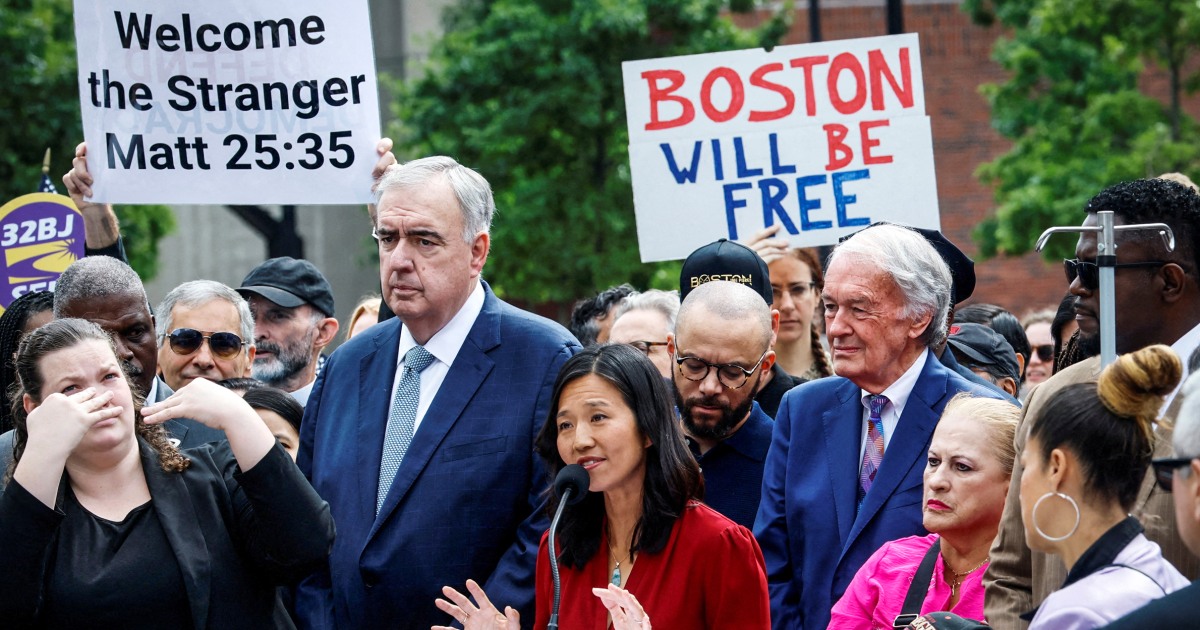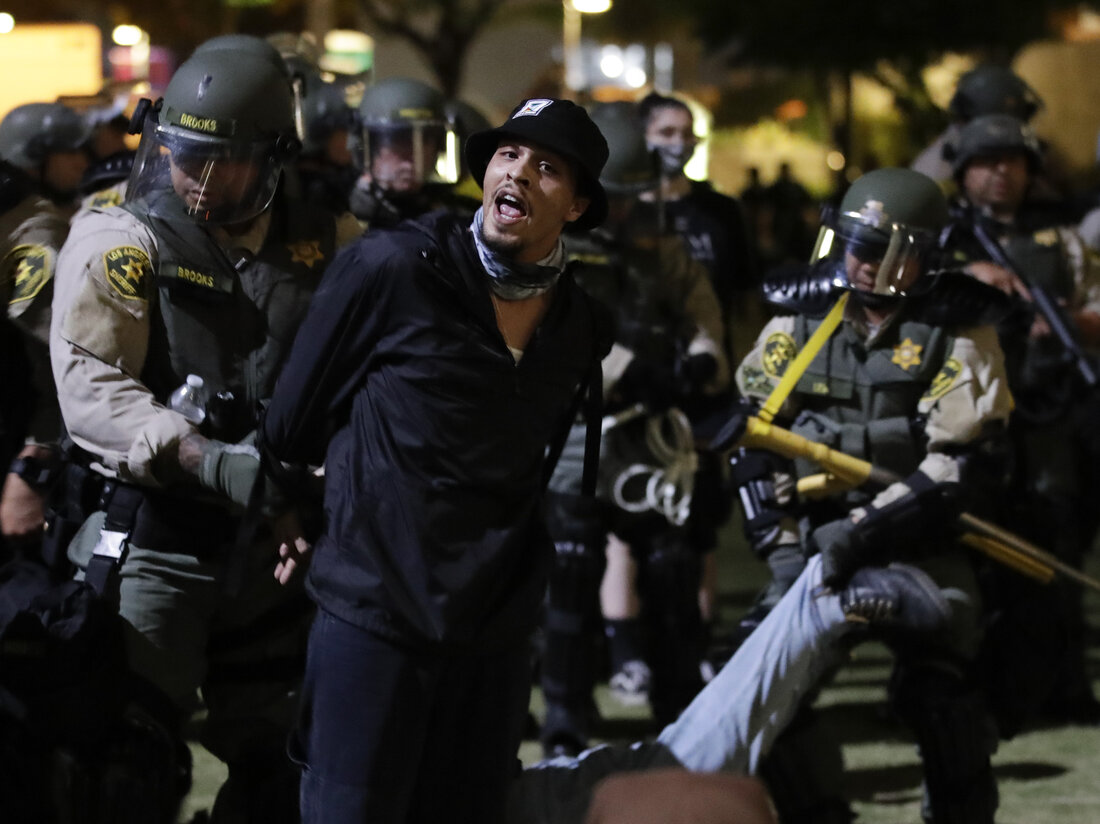John Shin, Utah Violinist, Detained by ICE

Introduction
In a shocking turn of events, long-time Utah violinist John Shin has been detained by U.S. Immigration and Customs Enforcement (ICE). Shin, who has played with prestigious organizations such as the Utah Symphony and Ballet West, was arrested by ICE on the basis of a 2019 DUI conviction.
The Impact of Shin's Arrest
Shin's arrest has sent shockwaves through the music community and beyond. Many are questioning the reasoning behind ICE's actions, as Shin has been a respected member of the Utah music scene for years. The Department of Homeland Security cited Shin's DUI conviction as the reason for his detention, but this has sparked a larger conversation about the treatment of immigrants in the United States.
Show of Support
In response to Shin's detainment, many musicians have shown their support for him and condemned ICE's actions. A GoFundMe page has been set up to help with Shin's legal fees, and a petition has been created to stop his deportation. Additionally, the Utah Symphony and Ballet West have issued statements in support of Shin, highlighting his contributions to their organizations and the community.
About the Organizations Mentioned
Utah Symphony
## Overview The Utah Symphony, based in Salt Lake City, is one of the United States’ leading symphony orchestras, recognized for its artistic excellence, extensive touring, and pioneering recording legacy[6]. Today, it operates under the umbrella of Utah Symphony | Utah Opera (USUO), following a 2002 merger that consolidated the state’s major classical music institutions[5]. The organization presents over 100 performances annually across multiple venues, including Abravanel Hall, Capitol Theatre, and the Deer Valley® Music Festival, while also delivering a robust education program that reaches more than 140,000 individuals each year[5]. ## History The roots of symphonic music in Utah trace to 1892, but the current Utah Symphony was formally established in 1940, arising from earlier groups such as the Salt Lake Symphony and Utah State Sinfonietta[1][3]. The orchestra’s early years were shaped by community support and modest resources, operating as a part-time ensemble until the mid-20th century[2]. A transformative era began in 1947 with the appointment of Maurice Abravanel as Music Director. Over his 32-year tenure, Abravanel elevated the orchestra to full-time professional status, expanded its repertoire, and launched ambitious touring and recording initiatives[4][6]. ## Key Achievements Under Abravanel, the Utah Symphony became one of the first American orchestras to record the complete symphonies of Mahler, including the first commercial stereo recordings of the Seventh and Eighth Symphonies[4]. The orchestra undertook four international tours between 1966 and 1977, performing in 16 countries and making notable appearances at major festivals and venues, including Carnegie Hall and the Kennedy Center[6]. Its education programs, developed during this period, became a national model for community engagement[6]. ## Current Status Since 2002, the Utah Symphony has been part of USUO, which has strengthened it
Ballet West
Ballet West is a renowned American ballet company based in Salt Lake City, Utah, recognized for its rich history and contributions to the world of dance. Founded in 1963 by Willam F. Christensen and Glenn Walker Wallace, the company began as the Utah Civic Ballet before changing its name to Ballet West in 1968 to reflect its regional status[1][2]. Christensen, known as the "godfather of American ballet," was instrumental in establishing the first ballet department in an American university at The University of Utah in 1951[1][4]. Over the years, Ballet West has grown into one of the world's leading regional ballet companies, known for its diverse repertoire and performances of classic ballets such as *The Nutcracker*, *Swan Lake*, and *Coppélia*[1][2]. The company's *Nutcracker* production, choreographed by Christensen in 1944, is celebrated as America's first full-length version of the ballet and has been performed annually since its inception[6]. Ballet West has been led by several artistic directors, each contributing unique styles to the company. Notable directors include Bruce Marks, who introduced Danish and modern dance traditions, and Adam Sklute, the current director who brings experience from The Joffrey Ballet[1][4]. Today, Ballet West continues to inspire and empower its community through performances, training programs, and educational outreach[9]. As a non-profit organization, Ballet West remains committed to its mission of enriching the cultural landscape through ballet. Its legacy is marked by significant achievements, including being named one of the "Big Nine" ballet companies in the U.S. by the Ford Foundation[3]. With its enduring presence and commitment to artistic excellence, Ballet West stands as a testament to the power of cultural institutions in shaping regional and national identity.
Department of Homeland Security
The **Department of Homeland Security (DHS)** is a U.S. federal agency established in response to the 9/11 terrorist attacks to safeguard the nation from a wide range of threats including terrorism, natural disasters, cyberattacks, and border security challenges. Its core mission is to protect the American people, critical infrastructure, and uphold national security by coordinating efforts across government and private sectors. DHS oversees immigration enforcement, cybersecurity, emergency response, and counterterrorism initiatives. Formed in 2002, DHS consolidated 22 federal agencies to create a unified structure for domestic security. Its key components include the U.S. Customs and Border Protection, the Federal Emergency Management Agency (FEMA), and the Transportation Security Administration (TSA). Over the years, DHS has played a critical role in preventing terrorist attacks, enhancing airport security, responding to natural disasters like hurricanes and pandemics, and advancing cybersecurity protections for government and private sector networks. In recent years, DHS has shifted focus towards emerging threats such as unmanned drone attacks on infrastructure, cyber intrusions into financial and critical systems, and disruptions to supply chains. Strategic visions for 2025 and beyond emphasize technological innovation, integration of intelligence, and public-private partnerships to address these complex challenges. The agency’s budget reflects its broad mandate, with over $400 billion allocated for fiscal year 2025, underscoring its significant role in national security and emergency preparedness. Notably, DHS has faced scrutiny and calls for reform, especially regarding immigration enforcement and internal mission clarity. Recent directives have expanded immigration enforcement powers to other federal law enforcement agencies, reflecting policy shifts under different administrations focused on border security. For business and technology sectors, DHS represents a major government player driving innovation in cybersecurity, disaster response technology, and infrastructure protection, while navigating evolving threats in a complex geopolitical landscape. Its ongoing modernization efforts aim to enhance resilience and adapt to future security challenges.













